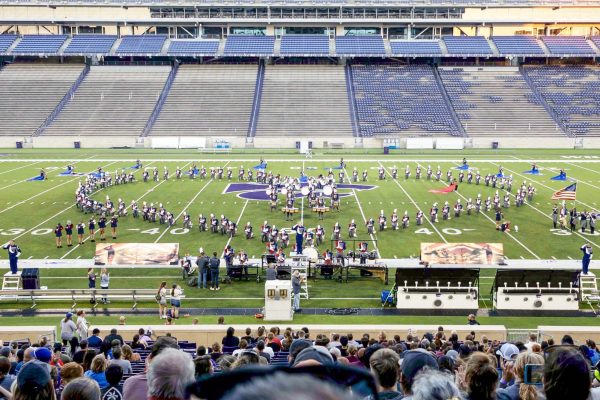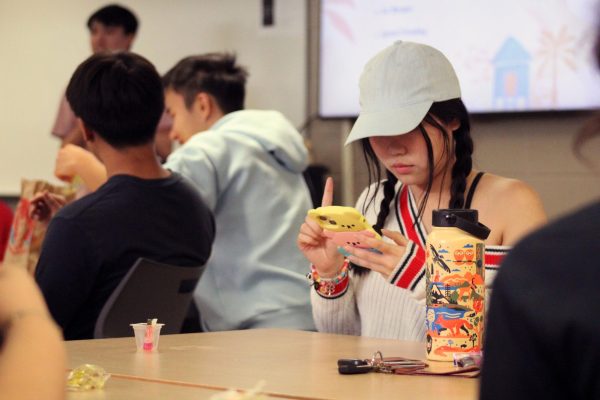Administration bans baby powder for health reasons
The days of being coated in baby powder during Manhattan High football games have met their end.
Throwing baby powder into the air goes back to the beginning of the careers of Michael Jordan and LeBron James, and MHS — as well as several other high schools across the nation — quickly adopted the tradition.
That is, until recently, when administration decided to ban baby powder at all MHS football games due to the negative health effects that come with inhaling talcum powder.
“The thing that caught our attention is the stories and the research about people breathing it in and inhaling it, and I think that’s the thing that really is what we’re looking at here,” senior principal Marvin Rupe said. “At the games, when people throw that up and it’s a cloud, it’s just coming in everybody’s faces.”
However, it’s not just the short-term annoyance of baby powder in people’s faces that are causing the worry. National research acknowledges the short-term and long-term effects of breathing in baby powder. According to ZocDoc, short term effects can include the general wheezing and coughing that come with inhaling anything foreign.
However, the long term results take a more serious turn with the possibility of lung irritation or inflammation — which can eventually lead to scarring of the lungs — or the development of pneumonia and other lung infections. For those with asthma or other breathing problems, the effects can come on quicker and can be even more dangerous.
Manhattan is not the only school that has been forced to reconsider the tradition for the health of their students; schools across the nation, such as Neuqua Valley High School in Naperville, Illinois, are making the same decision to ban baby powder at football games.
“This is drawing nationwide attention,” Rupe said. “It’s not just us. Nationwide attention that ‘hey, why is this being done,’ there’s some real research and information out there that this probably isn’t good to do in a crowd of people.”
As of now, there is no set plan for how the new ban will be enforced at the games. Administration is hoping that students will recognize the health risk involved and will respect the new regulation.
“I’d like to get to the point where we don’t have to enforce stuff,” Rupe said. “We put information out there and kids will make good decisions. This is cool, but at the same time…we need to be grown up and adult about it and we need to police it ourselves.”
Athletic Director Mike Marsh concurred.
“We just encourage the kids for the mere fact of their peers to take it seriously and not bring it in,” Marsh said. “We just want the kids to be respectful for what we’re asking, and we’re really looking out for their peers, plus anybody else that’s sitting in the stands. You have to think about others that are close to [the student section] when that may occur and it’s not a good situation.”
Though the tossing of baby powder into the air has been a large part in exciting the student section in years past, student section leader Cade Roberts, senior, acknowledged the opportunity for new traditions to be created.
“I understand what they are doing and why [administration banned baby powder], and being a leader of the student section, I understand it’s a privilege and something I’ve wanted to do since I’ve been in high school,” Roberts said, “and I think the best idea is to listen to the administration and avoid the baby powder. Although we can’t do that, it opens the door to maybe come up with something better to do.”



